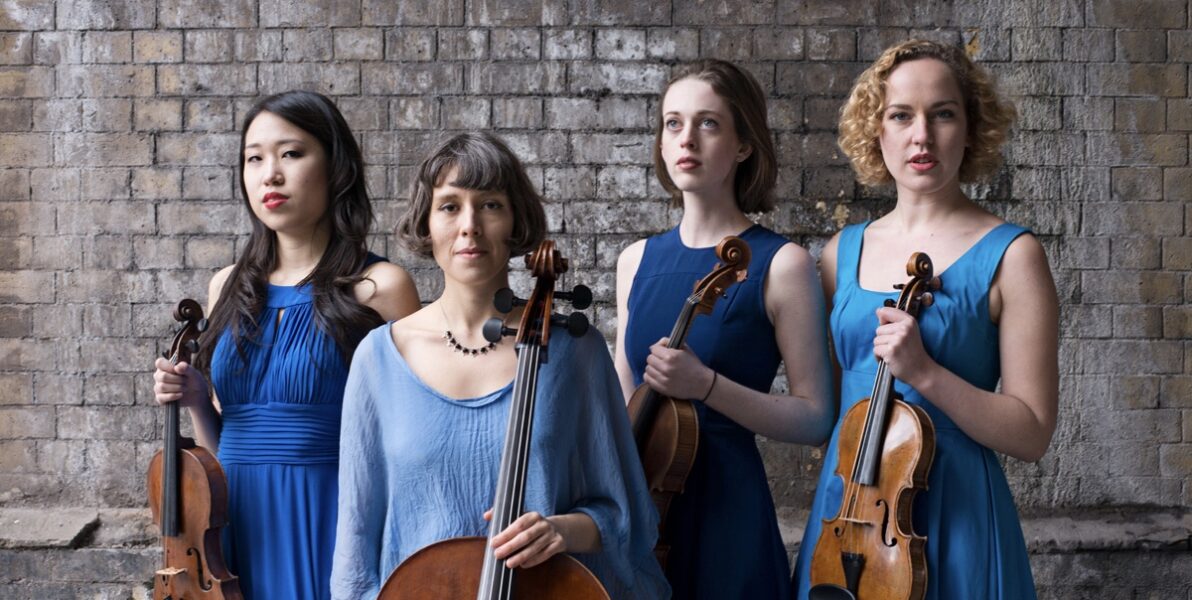Menu

As a former Wigmore Hall/Open Academy Fellowship Ensemble, the Bloomsbury Quartet is passionate about engaging audiences with thought-provoking programmes. Here the group presents a unique ‘concert experience’ that combines performance ‘in the round’ with a multimedia exhibition on the life and works of one of the finest composers the British Isles have ever produced: Dame Elizabeth Violet Maconchy LeFanu (1907-1994).
Bookended by an early and late string quartet, the concert also features music by Maconchy’s teacher Ralph Vaughan Williams, daughter Nicola LeFanu and Leoš Janáček, a key influence during the composer’s later studies in Prague.
For more information about the artists and their programme, see www.bloomsburyquartet.com
With kind support from Craven District Council
Photo credit: Christian Maier Smith
This concert is part of Skipton Music’s 75th anniversary season ‘Hidden Treasures: Celebrating Women Composers Across the Ages.’
Re-Centering on Elizabeth Maconchy
Skipton Music's season focusing on the work of women composers continued with an imaginative and vibrant concert given by the Bloomsbury Quartet and 're-centering' on the British composer Elizabeth Maconchy. As well as quartets from contrasting periods of her lifetime, we heard works by Vaughan Williams and Janáček, two of the major influences on her style, and by her daughter Nicola LeFanu. The concert was complemented by a display with photos and further information about her life and work.
It has to be said that this was not an evening of easy listening! – even the Vaughan Williams quartet, written during the second world war, is a sombre and at times harshly dissonant piece. But the Bloomsbury Quartet proved inspiring and compelling advocates for this largely unfamiliar music. The Maconchy first quartet and the Janáček quartet were electric with energy, while the more meditative interludes in the Nicola Lefanu and the later Maconchy quartet were played with great delicacy and lovely sonorities, and the epilogue of the Vaughan Williams was treated with the warmth and fullness of sound that we would expect from this master of string writing.
This concert was 're-centred' in another sense: the quartet opted to play at ground level in the middle of the audience, between the front seats and the raked seating. As well as giving a much more intimate feel – as if we were privileged friends sitting in on four people playing for their own pleasure – it was a joy to see, as well as hear, the empathy between the players. Let's hope that other ensembles who come to Skipton will follow suit!
Charles Dobson